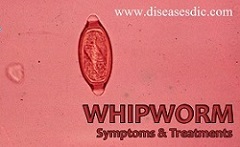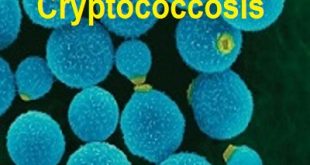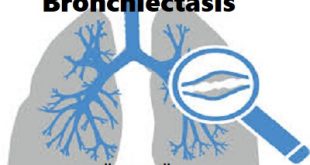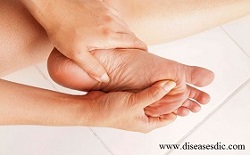Definition Folliculitis barbae is the medical term for a common condition called barber’s itch; this condition is an infectious skin disease which arises on the bearded facial areas of people who are unlucky enough to contract the disease. The disease develops and the first signs of the condition are the …
Read More »Beriberi – Risk Factors, Manifestations, and Diagnosis.
What is Beriberi? Beriberi is a syndrome characterized by a group of symptoms exhibited by people who are deficient in Vitamin B1, also known as thiamine. Therefore, it usually afflicts malnourished individuals’ particularly in underdeveloped countries. Two kinds of beriberi are well known. Wet beriberi leads to cardiovascular dysfunction while …
Read More »Whipworm Infection – Definition, Symptoms, and Treatment.
Definition Whipworm infection is an infection of the large intestine with a type of roundworm. Whipworm (Trichuris trichiura) is an intestinal parasite of humans. The larvae and adult worms live in the intestine of humans and can cause intestinal disease. The name is derived from the worm’s distinctive whip-like shape. …
Read More »Cryptococcosis – Causes, Symptoms, and Treatment.
Definition Cryptococcosis is a disease caused by fungi from the genus Cryptococcus that infect humans and animals, usually by inhalation of the fungus, which results in lung infection that may spread to the brain, causing meningoencephalitis. Cryptococcosis History In 1894 in Italy, Francesco Sanfelice was the first to isolate Cryptococcus …
Read More »Pellagra – Introduction, Symptoms, and Prevention.
Introduction Pellagra is a disorder due to inadequate dietary intake of niacin and/or tryptophan, manifested by a characteristic dermatitis on areas of the skin that are exposed to the sun, beginning as an erythema with pruritus that may lead to vesticulation but more frequently becomes chronic, rough, scaly, and hard …
Read More »Cat Scratch Disease – Definition, Risk factors, and Prevention.
Definition Cat scratch disease is an infection you can get after a cat scratches, bites, or licks you. It is caused by bacteria in cat saliva. Cats likely get the bacteria from fleas. Cat-scratch disease is also called cat-scratch fever. It is not a severe illness in healthy people. But …
Read More »Bronchiectasis: Causes, Manifestations and Management.
Introduction Bronchiectasis is an abnormal, chronic enlargement of the bronchi, the passageways from the trachea to the alveoli that are the air-exchanging parts of the lungs. Bronchiectasis generally occurs as a result of infection, although noninfectious factors may contribute to the development of this condition. Accompanying the enlargement of the …
Read More »Cellulitis – Risk Factors, Treatment, and Prevention.
Definition Cellulitis is a bacterial infection that affects the skin as well as the soft tissues under the surface of the skin. This kind of an infection usually occurs when bacteria enter normal or broken skin and start spreading under the skin into the soft tissues. This causes inflammation and …
Read More » Diseases Treatments Dictionary This is complete solution to read all diseases treatments Which covers Prevention, Causes, Symptoms, Medical Terms, Drugs, Prescription, Natural Remedies with cures and Treatments. Most of the common diseases were listed in names, split with categories.
Diseases Treatments Dictionary This is complete solution to read all diseases treatments Which covers Prevention, Causes, Symptoms, Medical Terms, Drugs, Prescription, Natural Remedies with cures and Treatments. Most of the common diseases were listed in names, split with categories.








